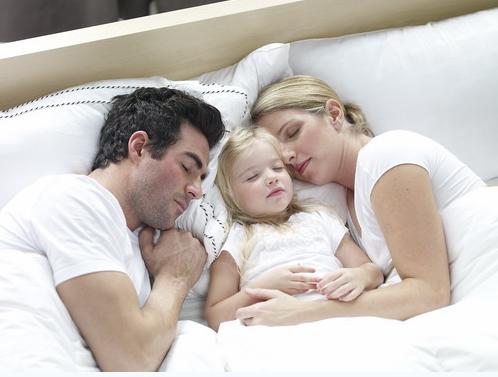(单词翻译:单击)
Do you jump out of bed every morning with a spring in your step? Or is it your partner who is first to it with a seize the day mentality that you just cannot stand? Well, research now suggests that when it comes to waking up on the wrong side of the bed, it is all about which side of the bed you have slept on.
早晨你从床上一跃而起?还是你的伴侣奉行“珍惜大好时光”的理念而你却不能忍受呢?嗯,现在研究表明,是否醒来在床的错误一边,它取决于你睡觉时的那一边。
A study by sleep experts at Sealy UK found that those who kip on the right hand side of the mattress are far more pessimistic than those who doze on the left.
英国西利的睡眠专家研究发现,那些睡在床右边的人远比左边的悲观。
They are also more likely to hate work, which adds to a seven per cent rise in grumpiness every morning. Sleeping on the left hand side of the bed has proven to be ten per cent more likely to give you a positive outlook on life, providing an eight per cent surge in how likely it is going to be that you will love your job.
他们看起来更可能讨厌工作,这使得每天早上增加了7%的暴躁情绪。睡在床的左手边被证明有10%的可能会给你一个积极的人生观,其中8%的增加使你可能会爱上你的工作。

Neil Robinson, Sealy's top snooze analyst, said: 'While the margins are small, the research certainly highlights an interesting trend - could it be possible that the left side of bed is the "right" side?
Neil Robinson, 西利顶级睡眠分析师,说:“虽然睡两边的区别不大,研究当然强调了一个有趣的趋势,这可能因为床的左边是“正确”的一面?
For many co-habiting couples this may prove problematic - with each side of the bed a fiercely guarded territory, changing from right to left may not be that easy. 'In probing the sleeping patterns of 1,000 adults, the research found loners who prefer their own company prefer sleeping on the right while those with a large circle of friends plump for the left.
“对于许多未婚同居夫妇,这可能证明是有问题的- 在床每一边极力守护的地盘,从右到左改变可不是那么容易的。”在探索1000成人的睡眠模式中,研究发现,孤独的人喜欢自己的同伴睡在右边,而那些朋友圈较广的人喜欢睡在左边。
It also found that some couples never have to cross that bridge - as one in three head to separate beds every night.
它还发现,一些夫妇表示没有必要越过分界线,因为每晚床都会被一分为三。
Nearly 50 per cent who do tend to usually share a duvet head for the spare room to escape their other half's snoring and a quarter to get away from their restlessness.One in ten are pushed out by their child or pet.
近50%的人会经常使用羽绒被来分割空余的空间,以隔离自己的另一半打鼾,四分之一的人是为了摆脱自身的焦躁不安。十分之一的人则是被他们的孩子或宠物占据。


